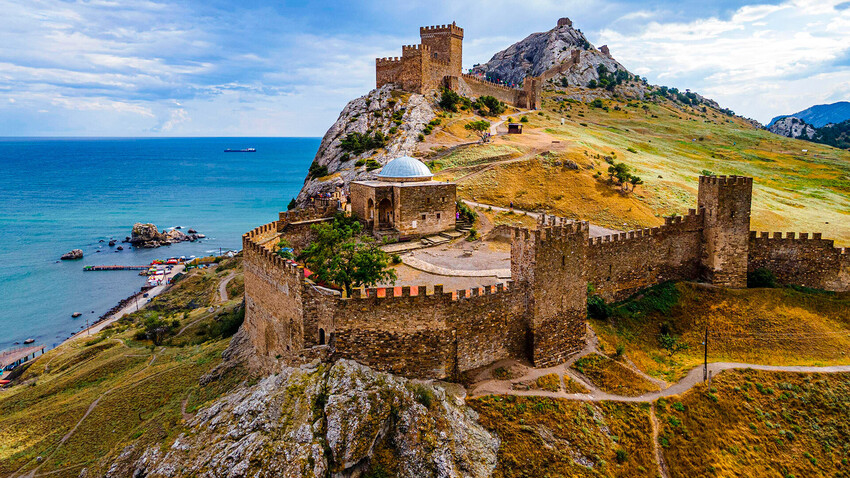
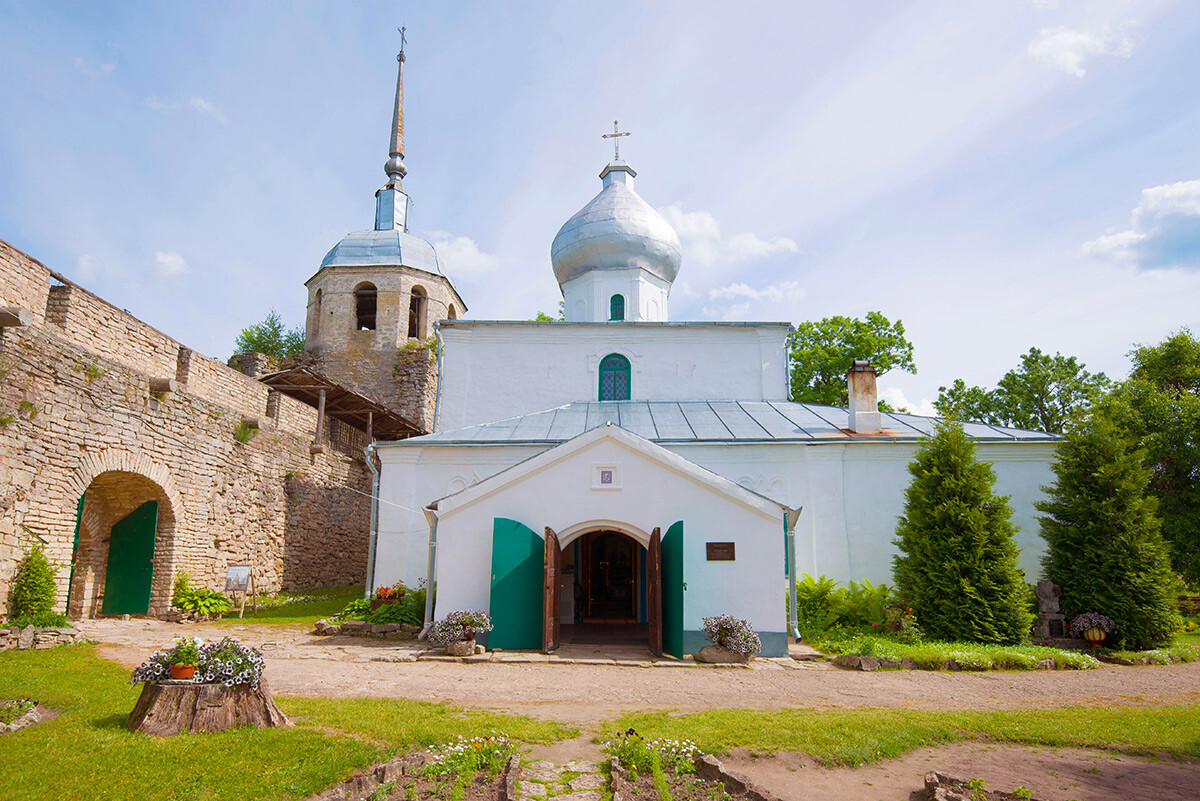
The town of Porkhov, located less than 100 kilometers from Pskov, was founded by Prince Alexander Yaroslavich (the future Alexander Nevsky) to protect the borders of the Novgorod Republic.
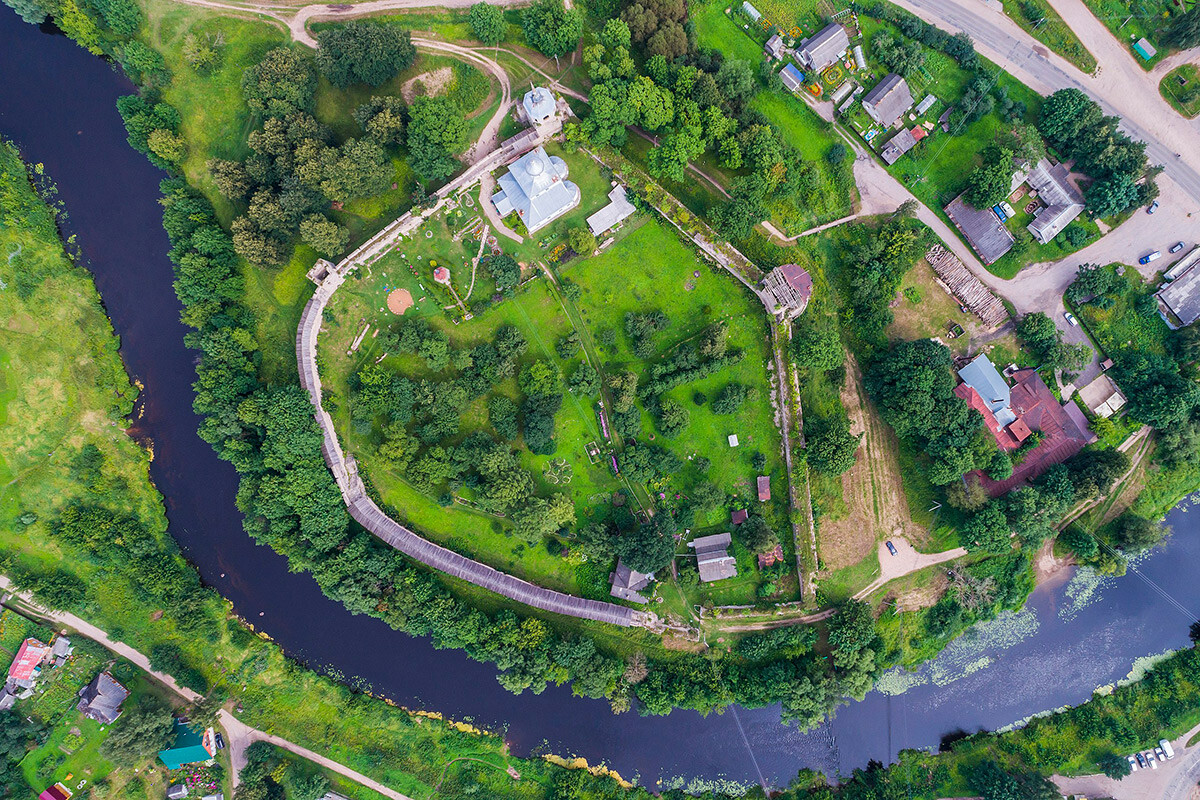
The stone fortress was built in 1387 to replace a wooden one. And, by the end of the 15th century, it was considered one of the main outposts of the Russian kingdom - its walls were able to withstand an attack using siege technology.
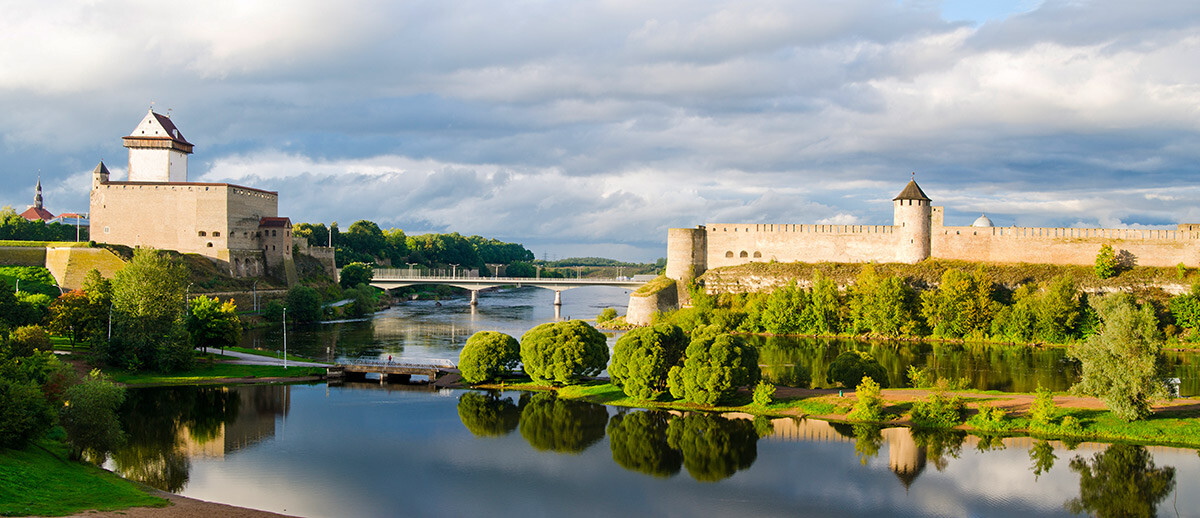
According to legend, the place of future construction of the fortress on the Narova River was determined by tying together thin strips of leather and stretching them along the perimeter.
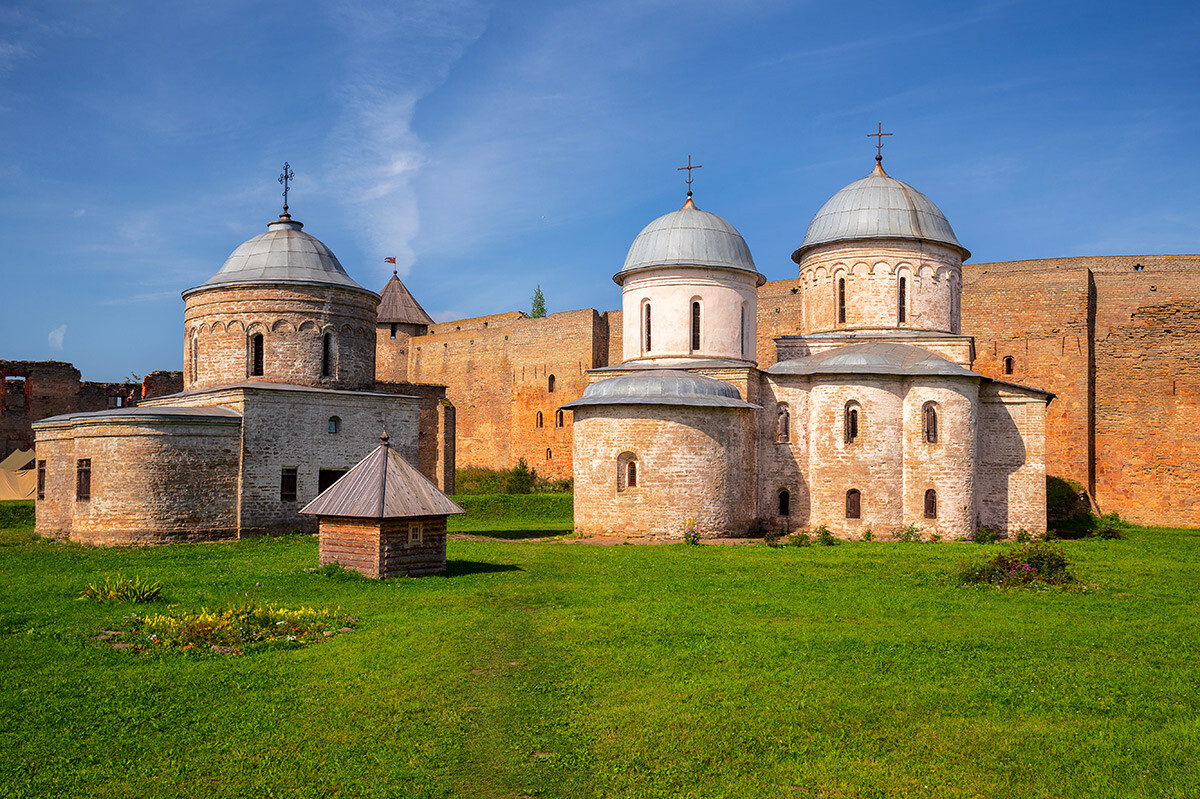
The Swedes tried to capture it many times and even succeeded - after the Russian-Swedish war, they owned the fortress for almost a hundred years, until 1704. Today, you can not only visit the museum and ancient churches, but also view the Narva Fortress standing opposite, located on the territory of Estonia.
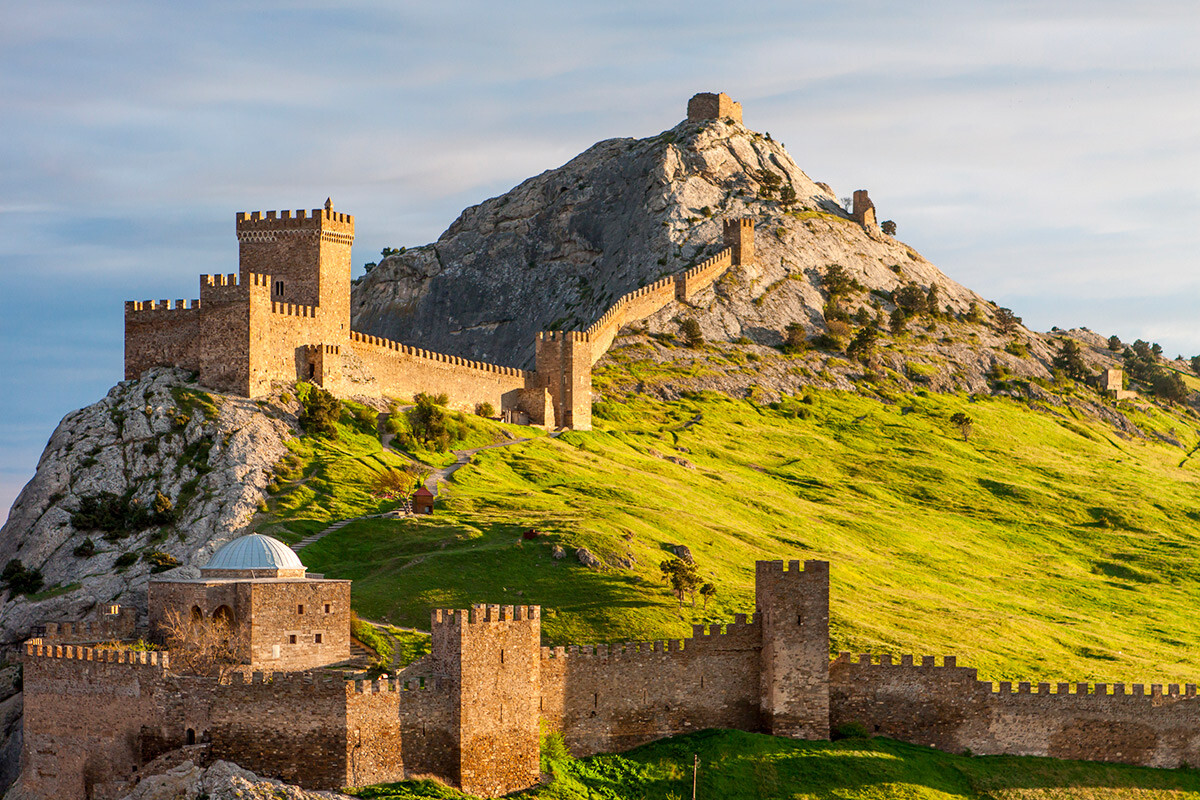
One of the most famous fortresses in Russia towers over the Sudak Bay - in the 14th century, it was built to protect aGenoese colony located there. The fortress carefully preserves the memories of the past centuries: its towers bear the names of the consuls under whom they were erected.

At the very top of the Fortress Hill, there is a large Watch Tower. In the 20th century, the fortress became a movie set more than once: the Soviet thriller ‘Pirates of the 20th century’ (1979),as well as Shakespeare's ‘Othello’ and ‘Twelfth Night’ were filmed there.
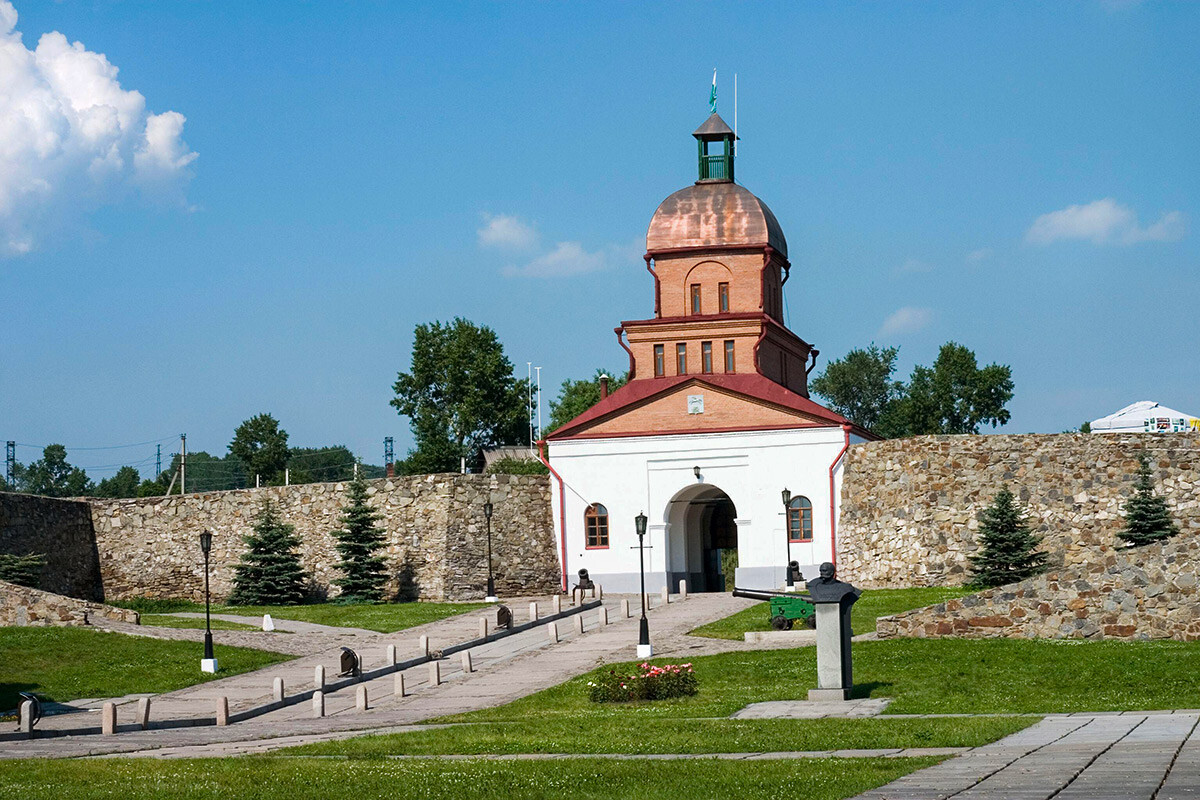
Although the Kuznetsk fortress was built to protect the territories from possible raids, it never participated in military operations.
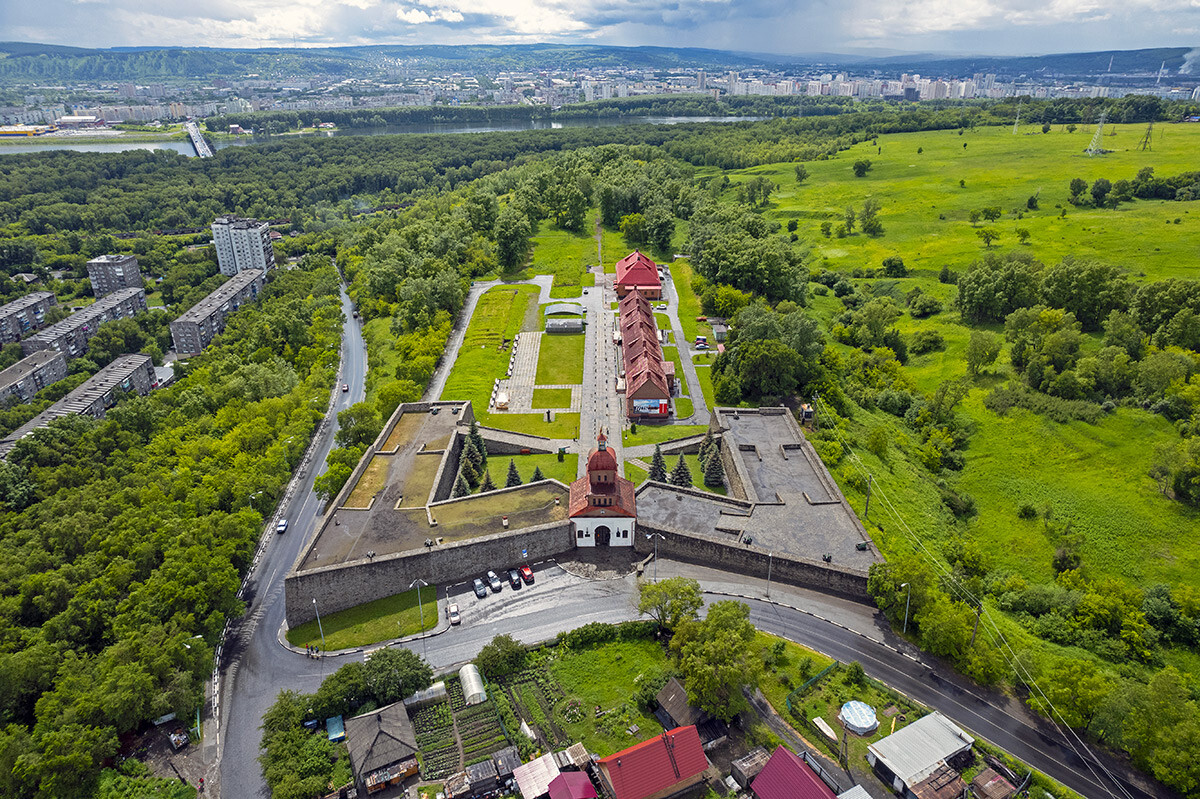
And, since the middle of the 19th century, it was used as a prison.

Since the beginning of the 18th century, the austere Yenikale has stood on the shores of the Kerch Strait.
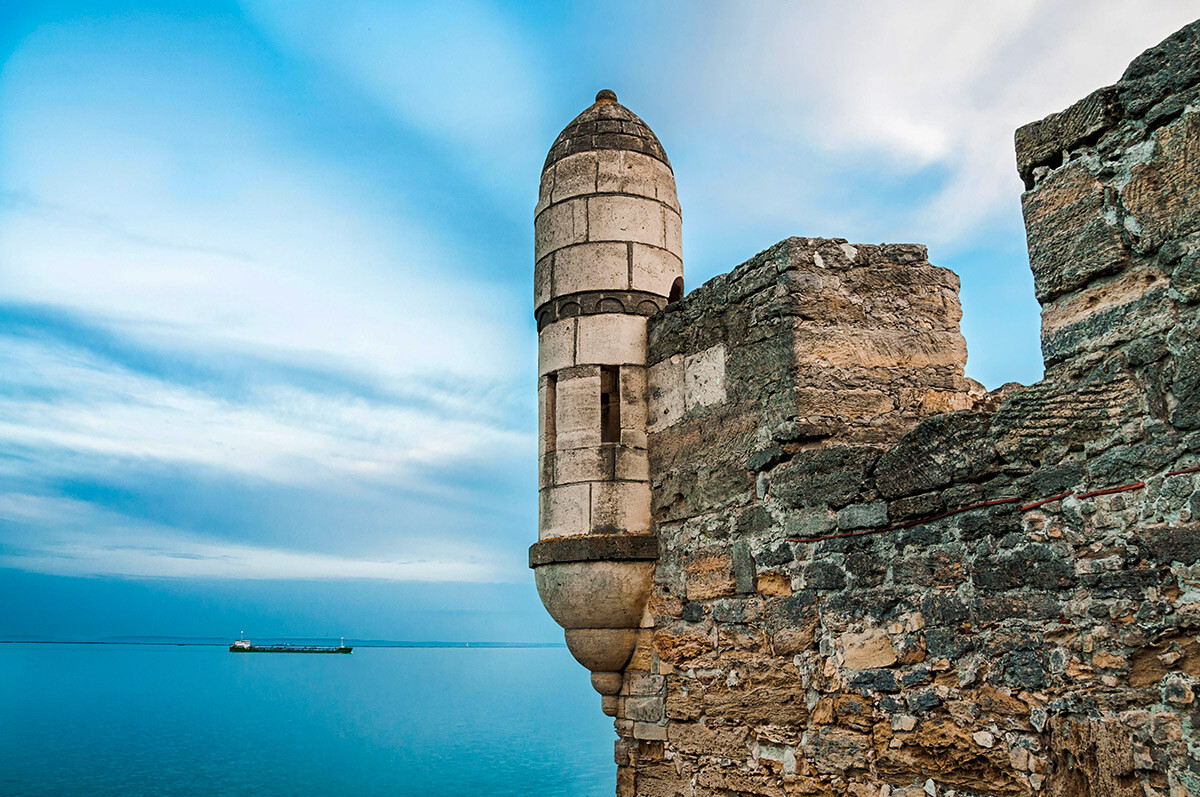
It seems difficult to imagine a more dramatic use for the walls of the fortress - it was used as a slave market. Today, little of its beauty remains, but its massive towers still make a strong impression.
Dear readers,
Our website and social media accounts are under threat of being restricted or banned, due to the current circumstances. So, to keep up with our latest content, simply do the following:
If using any of Russia Beyond's content, partly or in full, always provide an active hyperlink to the original material.
Subscribe
to our newsletter!
Get the week's best stories straight to your inbox